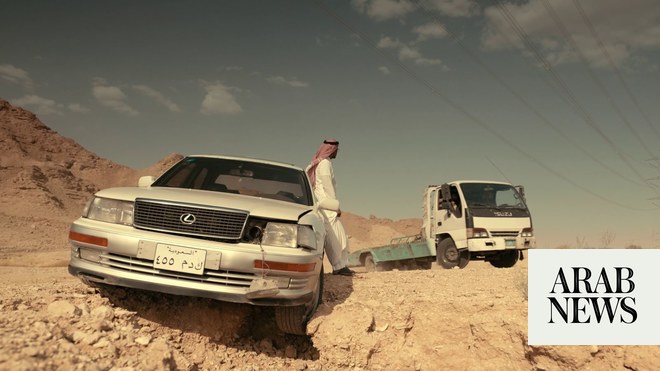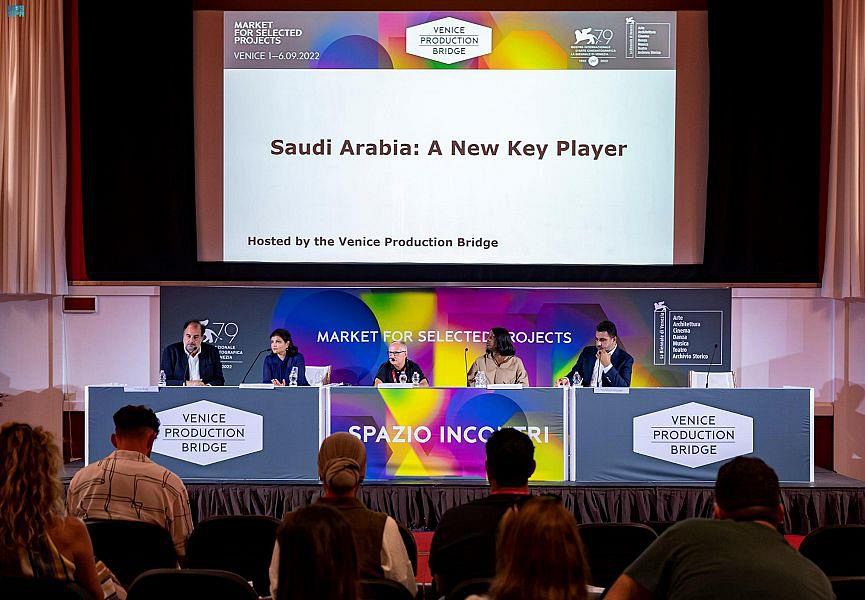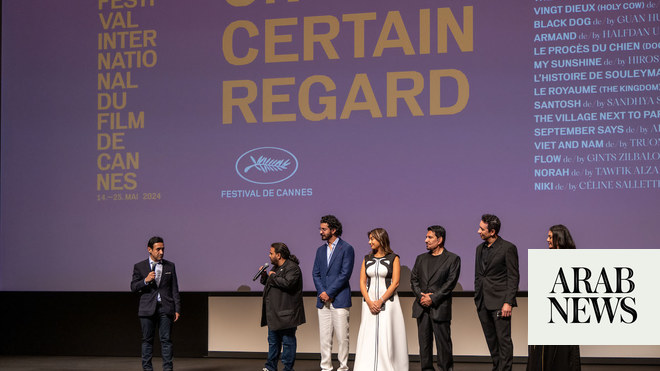
DUBAI: Saudi filmmaker Mohamed Al-Salman’s “Raven Song” — the Kingdom’s entry for this year’s Academy Awards — had its British premiere on July 2 as part of the annual SAFAR Film Festival. His fellow Saudi Maha Al-Saati was also featured in the festival with her short “VHS Tape Replaced.” As curator Rabih El-Khoury explained, this year marks 20 years since the invasion of Iraq and 75 years since the Nakba in Palestine. Along with the recent unrest in Sudan, he said, “I was thinking about the importance of time, the importance of these dates.” But equally important is the “space” aspect of the program. “The Arab world is composed of such a rich geography. We have a Somali film in the program — many people don’t know that Somalia is an Arab country; we have the two Saudi films, films from Morocco, Algeria, Tunisia, Lebanon, Palestine, Egypt, Syria… We wanted to explore the geography of the Arab world.”
The two films from the Kingdom share similarities — and not just their country of origin. In “Raven Song,” set in 2002, a man who has been diagnosed with a brain tumor seeks to woo a woman with whom he has become infatuated through song. It is, according to the festival’s synopsis, “a satire about an absurd love story and a seemingly lost soul.” Al-Saati’s short, meanwhile, is set in 1987 and tells the story of a young Black Saudi man trying to impress his crush “by mimicking an iconic singer.”
“They’re both love stories, really,” El-Khoury said. “And what I find more interesting than the singing theme is actually that they’re both era pieces — eras that are very different from today’s Saudi. Dating, for example, was completely different; you never had mixed locations for men and women. I find it very interesting that Saudi filmmakers are revisiting — or rediscovering — the past in their stories.
“I was interested in both of them because they speak about space and time — so both fit in our theme of this year — but also because we don’t know much about Saudi as a country. What we do know about it is what we hear in the news,” he continued. “Films like these — which are completely different from what we expect not only from Saudi cinema, but from Arab cinema — are interesting for me; films that speak about things that we, as a public, don’t necessarily know. It"s interesting to explore what Saudi is, as a country, through the lens of its filmmakers, not just through the news.” El-Khoury was speaking the day after the screening of “Raven Song,” which was followed by a Q&A with Al-Salman. “The film isn’t an easy film, I have to say. It’s a genre film from Saudi Arabia and people here don’t necessarily know the filmmaker,” El-Khoury said. “We were thrilled that we could present this singular voice from Saudi Arabia, but of course you don’t know if the public will turn up or not. But we had a good crowd and what I thought was really interesting is that the audience also stayed for the Q&A; they were eager to listen to him speak. Which made the Q&A just as interesting as watching the film. There were Saudi people and non-Saudi people in the audience, and everyone reflected on the film in a very special way. “There were people who wanted to know some bits and pieces about actual scenes from the film, but the director didn’t want to elaborate; he said he wanted the audience to understand it the way they wanted, and didn’t want to give them his vision of things. But also people asked about the political aspect, since 2002 was a critical year (in the region) because of the events of 2001. I thought it was very interesting how he tackled this question. He said he was making a film for the local audience, and that, at the time, in Saudi, people weren’t thinking about politics all the time; they carried on with their lives. So he was more interested in telling a social story than a political one. He said that if he had made a film about the political atmosphere at the time, then the local audience would know that this was a film made for Westerners.”
The screening fit well with what El-Khoury’s goals for SAFAR.
“I’m so excited that audiences are responding to, and identifying with, what we do,” he said. “Non-Arabs are discovering the Arab world in all of its diversity and complexity. And they’re changing their perspective on the Arab world.”












